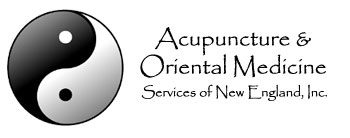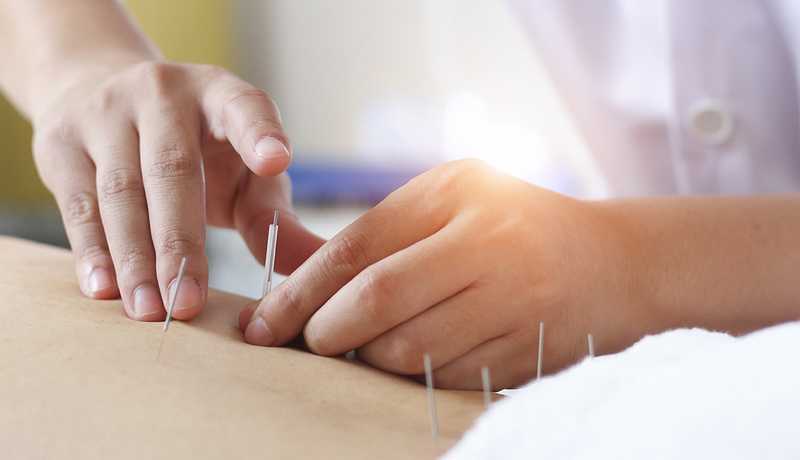Introduction:
Red blood cells develop in the bone marrow, which is the sponge-like tissue inside the bones. The body normally destroys old or faulty red blood cells in the Spleen or other parts of the body through a process called hemolysis. Anemia occurs when you have a low number of red blood cells due to too much hemolysis in the body. There are many types of anemia, which doctors diagnose based on the underlying cause anemia. Certain conditions can cause hemolysis to happen too fast or too often. Conditions that may lead to hemolytic anemia include genetic blood disorders such as sickle cell anemia or thalassemia, autoimmune disorders, bone marrow failure, or infections.
Case Presentation:
Female patient, 54 years old, works at ESPN, has come for acupuncture treatment for occipital headache, fatigue, SOB, insomnia and dizziness. Patient is vegetarian but said she takes a lot of vitamins like B, C, D and E and some folic acid. She has a very stressful job at the TV station and sometimes works even on weekends. She also travels a lot and sometimes does not eat a regular meal.
Secondary symptoms: dizziness, belching, abdominal pain, abdominal distention, alternating diarrhea and constipation, fatigue, weight loss, cold feet, occasional heavy menstrual bleeding.
Clinical Findings:
The following tests were done showing Hgb, HCT, Ferritin, MCHC, Iron Sat low level but UIBC and Imm Gran high. Folic Acid WNL. Platelets also WNL. Patient has a distant cousin diagnosed with hemolytic anemia so genetic testing can be beneficial. Patient has a very stressful job, lives with a female partner and has a 5 year old daughter. Both are vegetarians and exercise regularly 3x a week.
Physical Exam:
Occipital headache, fatigue, occasional dizziness, heart sounds regular, no murmur. Lungs no rales or wheezes but complaints of shortness of breathe with exertion. Gastro-intestinal: belching, occasional abdominal pain, alternating diarrhea and constipation, weight loss, cold feet, occasional heavy menstrual bleeding, stress and anxiety.
Vital signs: Temp. 98.7, Blood pressure 110/64. Emotion: patient highly stressed out due to the demands of her job, but verbalized she is has a good relationship and very happy with their daughter. No palpable masses, Thyroid function WNL. Pulse: deep, wiry guan & chi,
Tongue:
red tip, scalloped edges, thin coat, pale body.
Timeline
| Date | Intervention | Result |
| 6/17/2019 | Original MYOP + Acupuncture Treatment | Occipital HA level 9/10. Post treatment level down to 5/10 after treatment. |
| 6/19/2019 | Acupuncture treatment | Pre-treatment level 7/10. Post treatment level 3/10. Sleeping better. |
| 6/21/2019 | Acupuncture treatment | Pre-treatment level 3/10. Post treatment pain level 0/10. Still feeling tired, anxious. |
| 6/24/2019 | Acupuncture + Gui Pi Tang 3 gms BID | No Pain pre-treatment, still tired. |
| 6/26/2019
|
Acupuncture , same formula | Pre-treatment less tired. More energy after treatment but in relaxed mood.
|
| 6/28/2019 | Acupuncture , same formula | MYOP-follow up. No Pain, sleeping better, less anxious |
Diagnostic Focus and Assessment:
Repeat of the following tests after one month of Gui Pi Tang herbal formula. CBC with diff., CMP, TSH, T3T4, TIBC, UIBC, Ferritin, Reticulocyte count, B12 and Homocysteine level. Chest X-Ray and EKG to rule out any heart and lung pathology if SOB still present despite normal blood values. To test for fibroids if menstrual bleeding happens again, Abdominal Ultrasound, MRI and Hysteroscopy. Test for Cohn’s Disease if alternating diarrhea and constipation still present: CT scan, Colonoscopy, Fecal Blood Test.
Therapeutic Focus & Assessment:
Patient’s PMD had prescribed one unit of blood transfusion and was started on Prednisone 10 mg initial once a day then taper down to 5-1-0. With PMD aware of the herbal formula that was started a day after the last dose of the Prednisone.
TCM TX:
Acupuncture treatments to tonify Spleen, Heart, Liver and Kidneys and move stagnant Qi & Blood to treat occipital headache. Dr. Tan’s Balance Method: R – LU 5, 9, ST 36,43, L- LI 11,4, SP 9, 3, KI 7,4,2, LV 8,3. LI 1,4, LU 11,8, ST 45,42, SP4,1, LV1,4. Gui Pi Tang
Analysis of Formula:
Ren Shen, Huang Qi, Bai Zhu and Gan Cao tonify the Qi and strengthen the Spleen. Dang Gui and Long Yan Rou nourish the Blood, whilst Da Zao stops sweating and strengthens the Heart and calms the Shen. Yuan Zhi and Fu Ling also strengthen the Heart and calm the Shen. Sheng Jiang and Da Zao strengthen the Spleen and stomach to promote the production of Qi and Blood. Whilst Mu Xiang promotes the circulation of Qi and strengthens the Spleen’s transportation function thereby avoiding excessive tonification (Junying 1991).
Actions:
Tonifies the Qi and nourishes the Blood. Strengthens the Spleen and nourishes the Heart.
Indications:
Amnesia, anxiety, bleeding, dream disturbed sleep, fatigue, general debility, insomnia, irregular menstruation, low grade fever, night sweats, pale, palpitations, phobias, poor appetite, poor memory, swallow complexion, weariness and withdrawal.
Dietary Changes:
Patient is a vegetarian, encourage her to eat meat 1x or 2x a week. Chicken liver, oysters, clams, beef liver, beef chuck roast, lean ground beef, turkey leg, tuna, eggs, shrimp, leg of lamb were suggested. The following foods are good sources of nonheme iron (from plants): Raisin bran (enriched), instant oatmeal, beans (kidney, lima, Navy), tofu, lentils, molasses, spinach, whole wheat bread, peanut butter and brown rice. Recommended Qigong Meditation for stress and anxiety management. There are more and more scientific reports today supporting the fact that qigong can affect the immune system and endorphin levels in the brain.
Follow –up/ Outcomes:
Patient is strictly vegetarian so it was difficult for her to follow my dietary recommendations at first. She also does a lot of work related out of town trips that eating a regular meal sometimes is a big problem, however, patient is eager to continue her acupuncture and herbal formula as needed. Her primary care physician is aware and in agreement to avoid patient getting to many blood transfusions. At present her CBC with diff., CMP, TSH, T3T4, chest x-ray, EKG are normal. Additional blood works TIBC, Iron Sat., UIBC, Ferritin,Genetic, Bone Marrow, Coomb’s test, Reticulocyte Ct. are also normal. Patient gets B12 injection once a month. Her menstrual bleeding is less frequent and not heavy. She refuses to take HRT. Her BM is soft in consistency without abdominal pain. She is trying to eat at least grilled chicken or hardboiled egg once every other week. Patient will continue to take Gui Pi Tang herbal formula at 3 grams 2x a day for 1 month and blood tests will be repeated as ordered by her primary care physician.
Discussion:
To date, there are limited studies on the usefulness of acupuncture for anemia. For patients who has anemia and are facing significant distress due to their pain and are not being provided adequate relief with pharmacologic therapy alone, acupuncture could potentially serve as adjuvant therapy for pain management. Common reasons for acupuncture referral for pain management are as follows: patient and/or provider want to utilize non-pharmacological therapy to minimize use of pharmacotherapy; poorly controlled pain despite optimal opioids and pharmacologic adjuvant therapies; use of opioids and pharmacologic adjuvant therapies limited by medication side effects; patient specifically requests acupuncture; patient has other symptoms such as anxiety, nausea, neuropathy that may benefit from acupuncture. Future clinical trials are needed to evaluate acupuncture’s efficacy and effectiveness for pain management in different treatment settings and for various types of pain etiologies among patients with anemia.
References
Giovanni Maciocia (2005) The Foundations of Chinese Medicine- A Comprehensive Text for Acupuncturist and Herbalist Second Edition
Clin J Pain. 2014 Sep; 30(9): 825–830.A retrospective review of acupuncture use for the treatment of pain in sickle cell disease patients: Descriptive analysis from a single institution. Retrieved from https://www.ncbi.nlm.nih.gov/pmc/articles/PMC4159140/
https://med-vetacupuncture.org/english/articles/attilio/guipi.html
https://www.project-meditation.org/a_mt3/qigong_meditation.html
Eva Luneta
Acupuncture & Oriental
Medicine of New England
413-493-1475
Key words: Acupuncture, Anemia, Blood Tests, Pain

